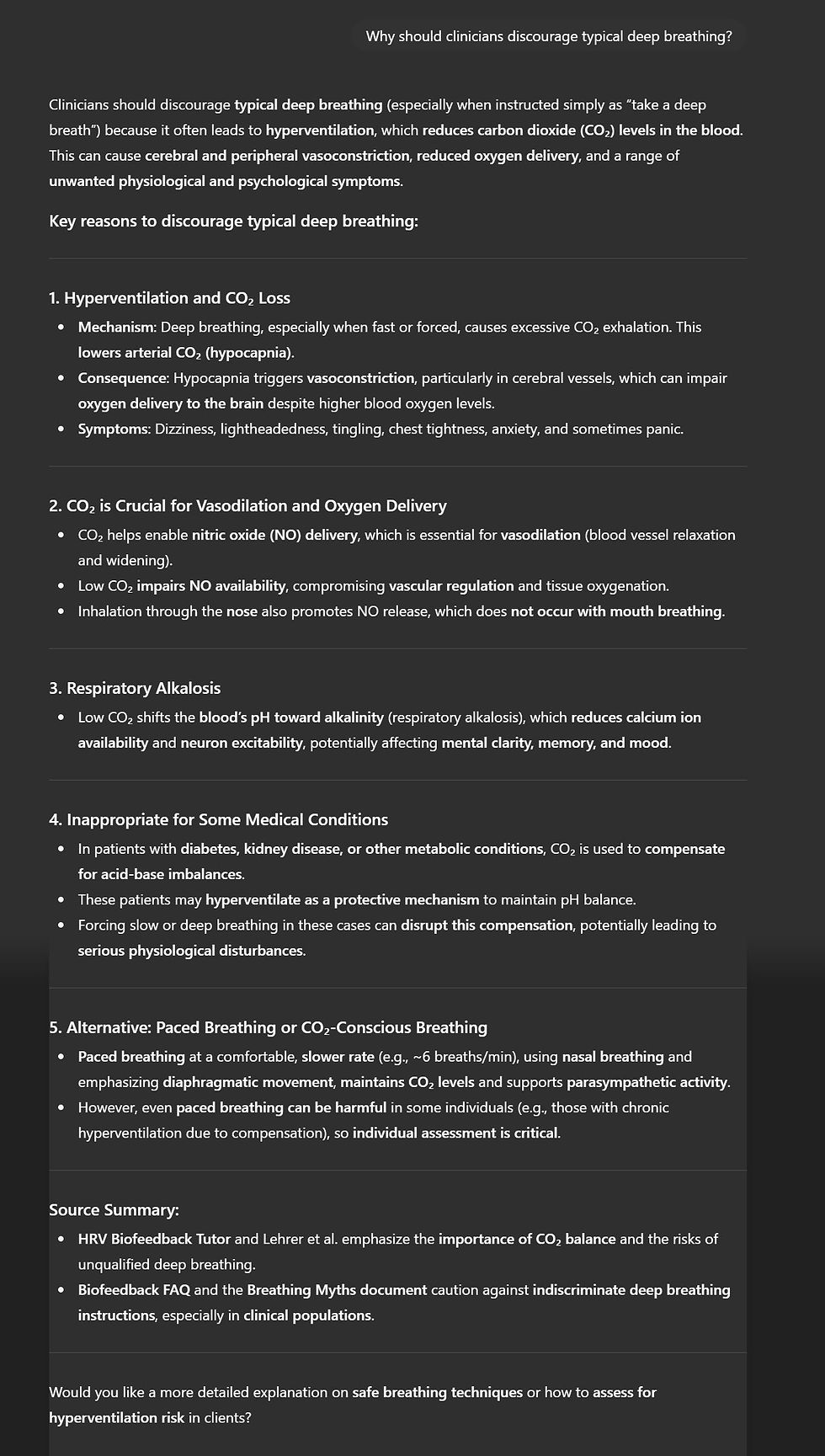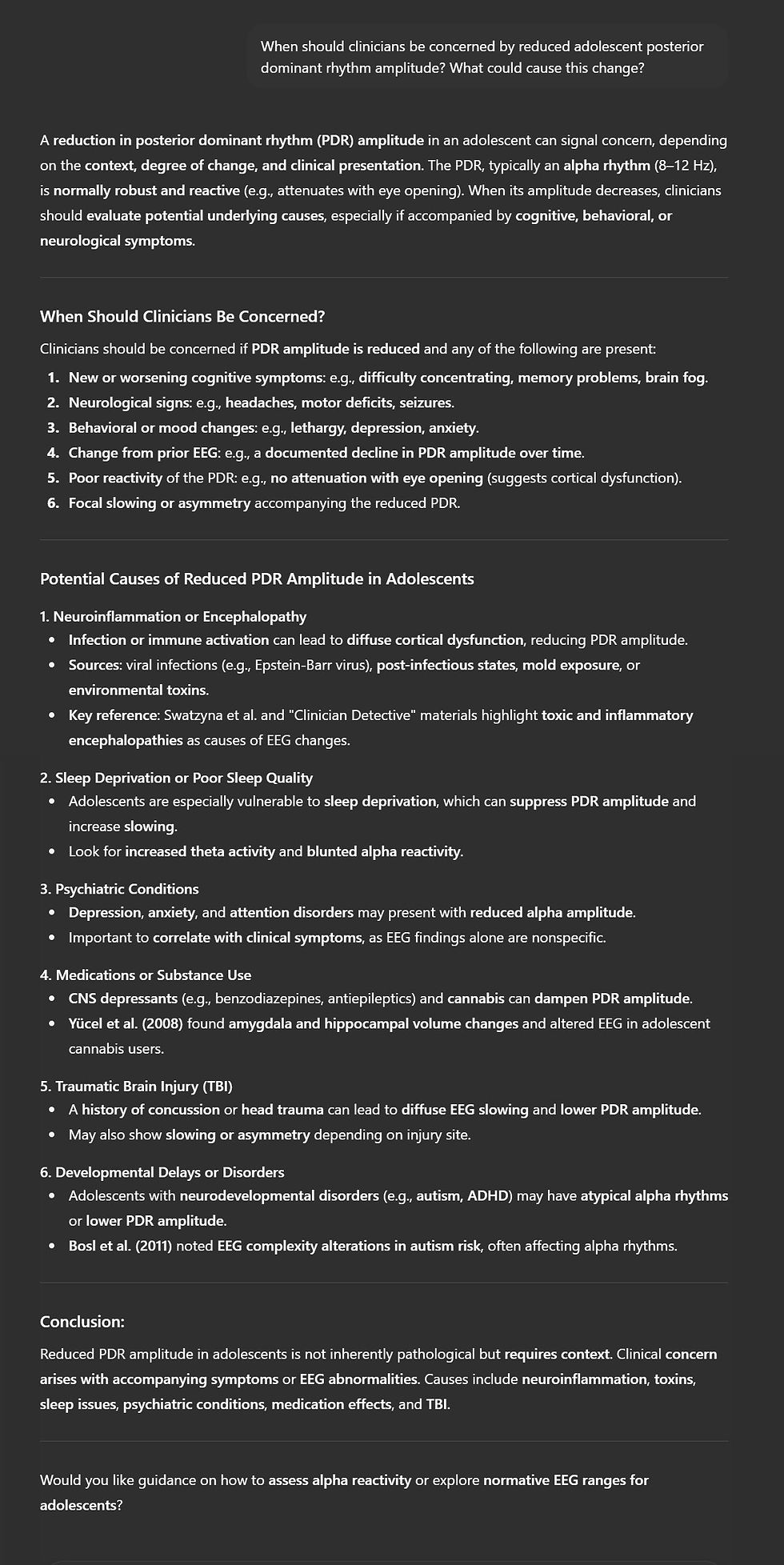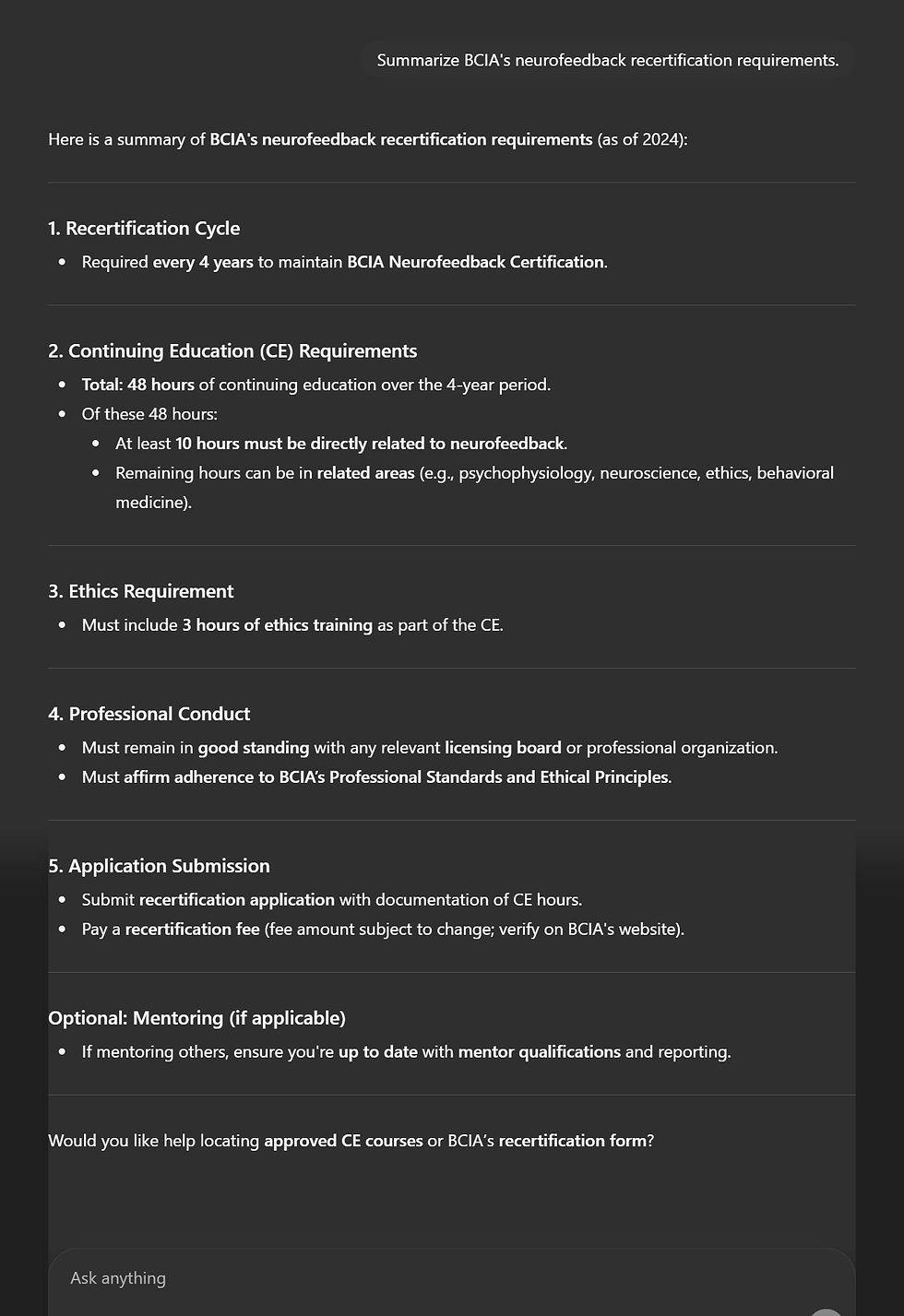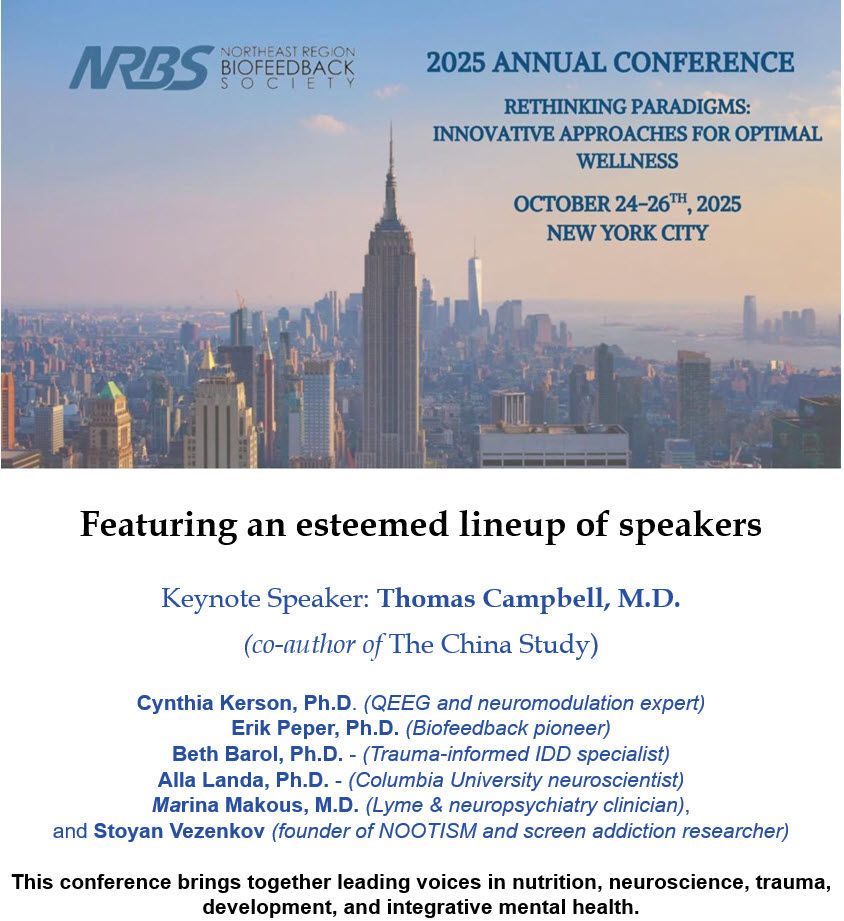We've Launched Mentor GPT
- Fred Shaffer
- Aug 3, 2025
- 2 min read
Updated: Aug 5, 2025

Mentor GPT is a free, highly specialized guide to certification, biofeedback, neurofeedback, qEEG, physiological psychology, psychopharmacology, and research methods. You can access it from our website menu without a paid ChatGPT subscription. OpenAI may limit you to five queries per day based on your subscription.
Mentor enjoys the strengths and suffers the limitations of all cutting-edge AI models. Users are responsible for critically evaluating outputs, verifying facts, and ensuring the ethical and accurate use of a model's responses.
Mentor's Strengths
Mentor offers nuanced, graduate-level insights grounded in evidence and clinical reasoning. Its strengths lie in precision, depth, and a commitment to clarity—defining technical terms, explaining physiological mechanisms, and highlighting individual differences that shape treatment decisions. It excels at integrating cutting-edge research with practical strategies, especially in complex areas like artifact correction, HRV biofeedback, and EEG interpretation.
Its greatest value is in supporting thoughtful, evidence-based practice—not in replacing human judgment, but in sharpening it.
Mentor's Limitations
Despite their impressive fluency, GPTs have significant limitations that often go unnoticed by casual users.
These models don’t understand language or facts in a human sense—they predict text based on patterns in data, not comprehension.
This means they can generate convincing but incorrect or misleading information, especially in complex or specialized domains. They also lack true reasoning, memory of past conversations unless explicitly programmed, and real-world awareness, making them prone to “hallucinations” and overconfident errors. Additionally, GPTs mirror biases present in their training data and may produce outputs that reflect societal stereotypes or misinformation. Finally, they are confined by their training cutoff and cannot access real-time information unless specifically connected to updated tools. In short, GPTs are powerful tools for generating language—but they are not substitutes for critical thinking or expert judgment.
How We Address Mentor's Limitations
The BioSource staff is committed to weekly auditing Mentor's answers and uploading current peer-reviewed scientific resources. We expect Mentor to make mistakes and understand that training to correct its errors is an ongoing process. You can help us by reporting errors (your question, Mentor's answer, and why it was wrong). We will fix most mistakes within a working day.
Mentor Examples



Key Takeaways
Mentor GPT is a free, expert-level guide that supports certification, biofeedback, neurofeedback, qEEG, physiological psychology, psychopharmacology, and research methods with precise, evidence-based insights.
Mentor excels at clarity and integration, defining technical terms, explaining physiological mechanisms, and offering practical strategies rooted in clinical reasoning.
Mentor enhances, but does not replace, human judgment, serving as a tool to support thoughtful, evidence-based decision-making rather than a substitute for critical thinking.
Mentor shares GPTs’ inherent limitations, including occasional factual errors, lack of real understanding or reasoning, and the risk of generating plausible but incorrect or biased content.
Ongoing accuracy is promoted through active oversight, with BioSource staff auditing responses, updating resources weekly, and inviting users to report and help correct errors promptly.
Support Our Friends








The weekly audit commitment is crucial—most specialized GPTs degrade without domain expert oversight. Curious if you're tracking correction patterns to identify systematic knowledge gaps versus one-off hallucinations? time duration calculator